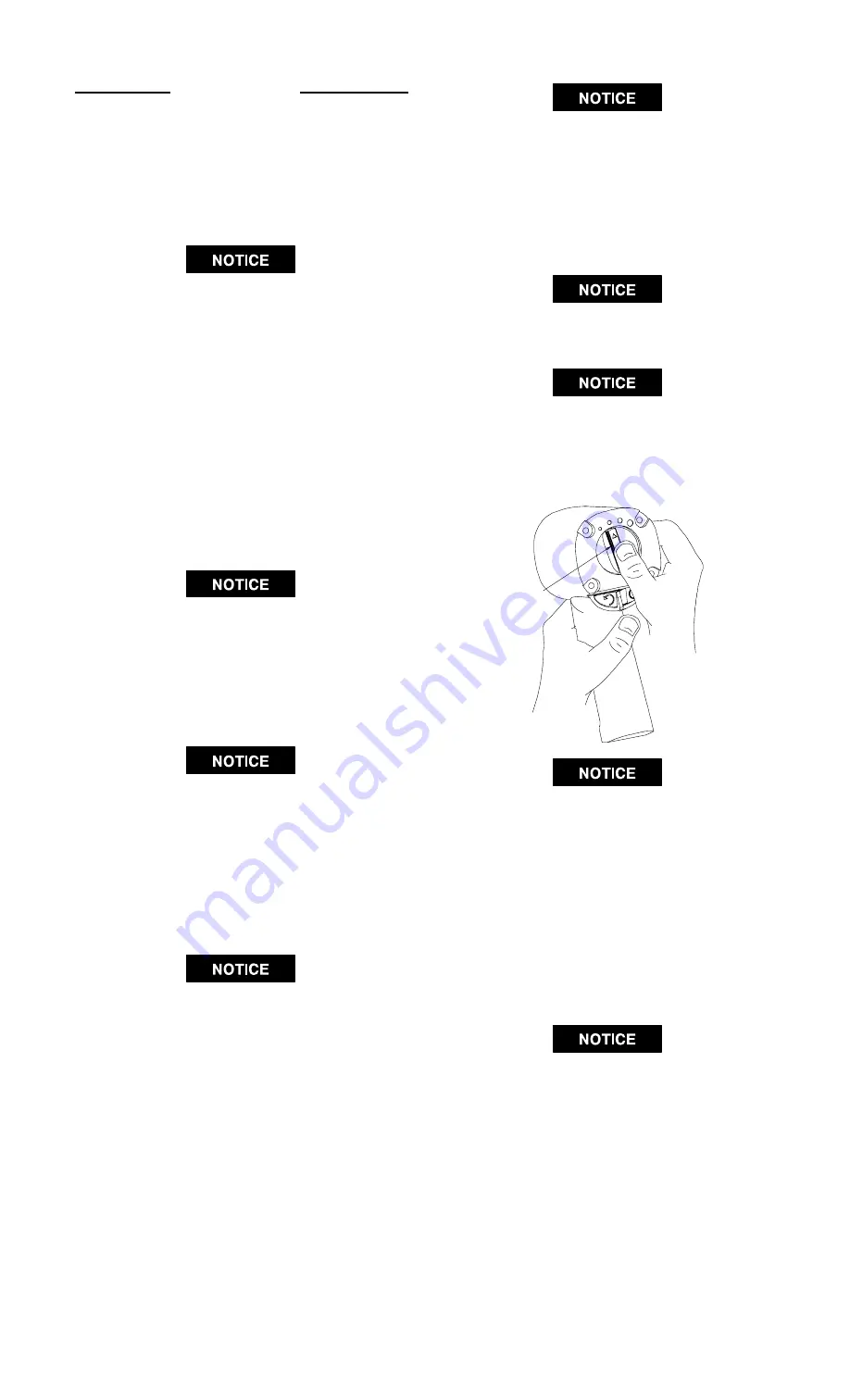
33
MAINTENANCE SECTION
DISASSEMBLY
General Instructions
1.
Do not disassemble the tool any further than
necessary to replace or repair damaged parts.
2.
Whenever grasping a tool or part in a vise, always use
leather–covered vise jaws to protect the surface of the
part and help prevent distortion. This is particularly
true of threaded members and housings.
Always use leather–covered vise jaws when
clamping the handle in a vise. Leather will
conform to the shape of the handle and allow the
tool to be held securely. To prevent damage to the
exhaust diffuser, never clamp only the bottom of
the handle.
3.
Do not remove any part which is a press fit in or on a
subassembly unless the removal of that part is
necessary for repairs or replacement.
4.
Do not disassemble the tool unless you have a
complete set of new gaskets and O–rings for
replacement.
Disassembly of the Impact Wrench
1.
Clamp the handle of the impact wrench in a vise with
leather–covered jaws with the square drive positioned
horizontally.
Avoid excessive clamping pressure which can
damage the Housing and can cause difficulty when
removing the parts.
2.
Unscrew and remove the four Hammer Case Screws
(11).
3.
While lightly tapping on the end of the Anvil (8) with
a plastic hammer, lift off the Hammer Case (15) and
Hammer Case Gasket (18).
The Front End Plate (2) might come off during the
removal of the Hammer Case. Make sure that it
does not drop on the floor or strike a hard or
metallic surface since it might be damaged.
4.
Grasp the Hammer Frame (12) and carefully lift off
the entire impact mechanism, making certain not to
drop the two Hammer Pins (13).
Disassembly of the Impact Mechanism
1.
Set the mechanism, driver end up, on the workbench.
Note the twin hammers within the Hammer
Frame. These are identical, but must be placed in
the Hammer Frame in a certain relationship. Using
a felt–tipped pen, mark
the top hammer T
↑
" and
the bottom hammer B
↑
" with the arrows
pointing upward. Mark both Hammers on the
same end.
2.
With the mechanism sitting upright on the workbench,
slowly rotate the Anvil in a clockwise direction until
it comes up solid.
If you continue to rotate the Anvil, it will cam the
Hammers out of engagement. Don’t do this; merely
rotate the Anvil until it comes up solid.
3.
Hold the Hammer Frame firmly and without
disturbing the hammers, gently lift the Anvil while
simultaneously rotating it clockwise about 1/8 of a
turn, from the Hammer Frame.
4.
With the Anvil removed, lift out the two Hammer
Pins.
The twin hammers are now free to slide from the
Hammer Frame. Be careful do not to drop them.
Disassembly of the Motor
When pulling, disassembling or assembling the
motor, we recommend replacement of the Motor
Gasket (7).
1.
Remove the Motor Assembly from the Housing (19)
by pushing on Power Management Dial (34) from the
back of the Housing. See Dwg. TPD1322.
POWER
MANAGEMENT
DIAL
(Dwg. TPD1322)
If the Motor Assembly cannot be removed from the
Housing by pushing, tap the Power Management
Dial lightly until the Motor Assembly is free.
2.
Remove the Power Management Dial from the rear of
the Cylinder (1). Remove the Power Management
Dial Seal (35) if it needs to be replaced.
3.
Remove the Front End Plate (2) from the Cylinder by
tapping the splined end of the Rotor (5) with a plastic
hammer. If the Front End Plate does not come loose,
secure a center punch in a vise with the point angled
downward and outward from the vise. Grasp the
Cylinder and Front End Plate in one hand and position
the hole in the end of the Rotor against the punch.
Be careful not to drop the Cylinder since it can be
damaged by hitting a hard surface.
Using the other hand, tap the punch with a hammer
while pressing the Rotor against the punch. After a
few taps, the Front End Plate will slide off of the
Cylinder.
















































